2020: An unprecedented year in news
Varsity gives a month-by-month breakdown of the news which shaped Cambridge in a historic year
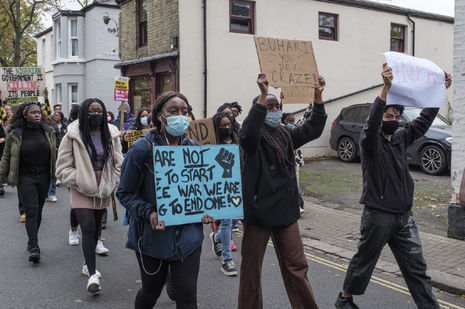
From the prospect of women landing on the moon, to Covid-19, Black Lives Matter (BLM), Rent Strikes and Freedom of Speech, 2020 certainly held a lot in store for Cambridge. Here, Varsity Senior News Editors, past and present, summarise some of the key moments which shaped the previous year for our University and community.
January – A promising start
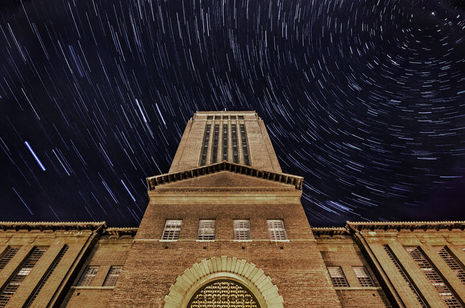
As hard as it may be to believe now, 2020 began brimming with positive news for Cambridge. Two of the University’s former students, Kayla Barron and Dr Jenni Sidey-Gibbons, graduated from NASA’s Artemis programme. This put them firmly on the path to becoming the first women on the moon, expected to land in 2024.
Meanwhile, Peter Biar Ajak, a former Cambridge PhD student who was imprisoned by the South Sudanese authorities for criticising the government, was released after 524 days in jail following a sustained online and UN pressure campaign. Staff were not forgotten in the good news either, as five academics were recognised in the New Year Honours, including Dame Sally Davies, Trinity’s newly appointed (and first female) Master.
February – Racist attacks and a creeping virus, as Cambridge faces several reckonings
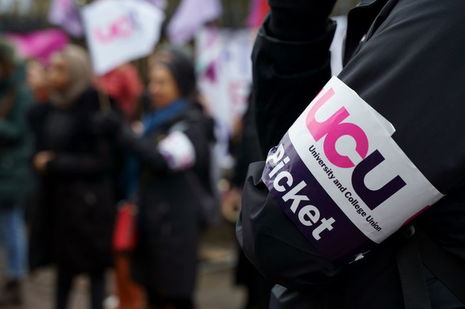
The darker side of 2020 began to rear its head already in February as the dangers of a fast-spreading new virus started to become known: and not just on health. Varsity broke the news that East Asian Cambridge students were increasingly being subjected to racist verbal and physical attacks. As national news outlets soon also reported, students were being ostracised in colleges, shouted at on the street and having sweets thrown at them in Market Square simply for wearing face-masks.
Meanwhile, a Tortoise investigation exposed an intricate web of alleged negligence by senior management at Trinity Hall in dealing with sexual assault cases involving its students, leading to a flurry of resignations and eventually an independent inquiry, which is still ongoing. Furthermore, University staff went on strike for 14 days, demanding greater equality and an end to rising pension contributions – all the while, Varsity was keeping a live-blog of Extinction’s Rebellion’s week-long shutdown of Cambridge.
March – An unprecedented crisis grinds the University to a halt
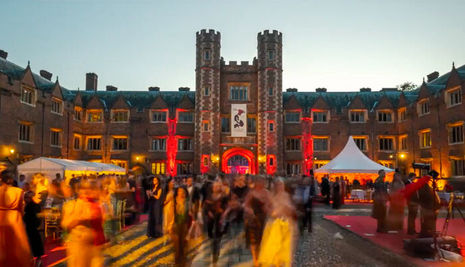
Before our very eyes, we now saw Covid-19 cases sharply rise across the world in March. From this moment on, Cambridge sometimes struggled to keep up with the lightning fast-developments which followed, as Varsity reporters scurried to bring ongoing coverage of the evolving situation on our live-blog. Soon, May Balls were cancelled, the Oxbridge boat race was called off for the first time since the Second World War, while colleges such as Trinity instructed students to evacuate as soon as possible. Finally, as the term came to a close, the University finally moved into its “red” phase, with Vice-Chancellor Stephen Toope launching his now-famous weekly updates to students. After much student anxiety and a long process of consideration, Cambridge introduced several no-detriment policies, including a “safety net” for final-year undergraduates, on 31st March. Not since the times of Isaac Newton and the Great Plague of 1665-66 had the University seen such silence on campus, as it shut its doors to the outside completely once again.
April – Shifts in College Residency
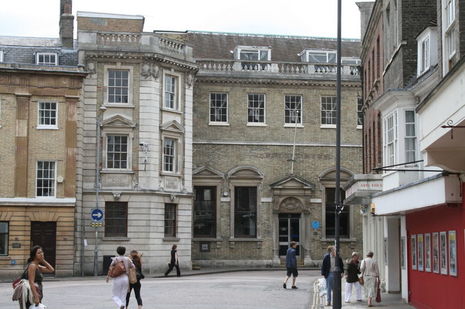
Following the short-notice demand that students depart Cambridge in late March, college occupancy fell dramatically. Whilst some students, particularly those from regions badly affected by Covid-19 early in the pandemic, remained in Cambridge, colleges were largely empty. As colleges worried about a forecasted £60 million income loss due to reduced rental occupancy of college accommodation, as well as dining and conference income, CUSU called on colleges to make vacant accommodation available to those in need. It was soon announced that King’s College would provide accommodation for rough sleepers, for an undisclosed sum paid for by Cambridge City Council.
May – Varsity Reveals Cambridge Lectures to Move Online
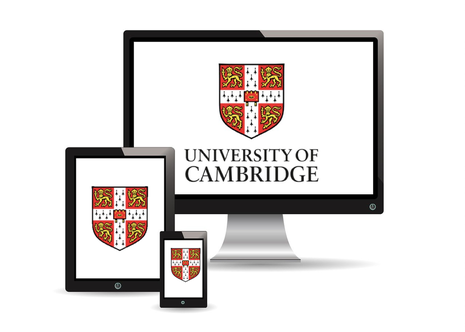
One of the biggest stories of the year both in Cambridge and beyond was our exclusive revelation that the University planned to move all lectures online for the 2020/21 academic year. The information that came to Varsity through a leaked internal email provided the first indication from a UK university that teaching for the coming academic year would look very different to the year that preceded it. Two months after the first national UK lockdown it became clear that the impact of the pandemic would be much farther reaching than some had initially hoped, and would prove to be just the start of a debate about the provision of education amidst a national outbreak that continues to the present day. The story subsequently made waves around the world, and saw the Varsity editorial team appear on the Today Programme, BBC World Service, Radio Cambridgeshire, ITV television and in Les Echos.
June – University Responds to Killing of George Floyd
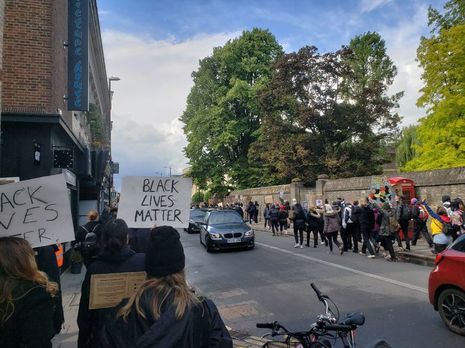
In June, the University community was rocked by the brutal killing of George Floyd by police officers in Minneapolis. CUSU’s BME Campaign released a statement highlighting the racism and injustice experienced by Black students in Cambridge, and also spoke to Varsity about their efforts to coordinate with “BME officers to help them support the welfare of Black students in their colleges during this difficult time.” In the days that followed thousands gathered on Parker’s Piece after marching through the city to voice support for the Black Lives Matter movement, whilst current students, alumni and staff signed an open letter to the University and its Faculties imploring them to take “more concrete” steps to tackle racism. The momentum generated by the movement saw probing questions asked about Cambridge’s historic links to colonialism and racism. Weeks later Gonville and Caius would announce its decision to remove a tributary panel to eugenicist Ronald Fisher, whilst in November Jesus College revealed it would “relocate” a memorial to slave trader Tobias Rustat.
July – Departure of Honorary Fellows
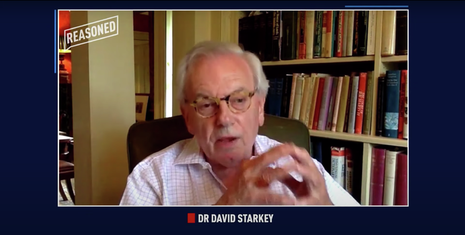
July saw developments in the long standing controversies surrounding the honorary college fellowships of David Starkey and Carrie Lam. The month began with Starkey’s “racist” comments in an interview with Reasoned, which followed years of calls for the removal of his honorary fellowship at Fitzwilliam College. Despite an apology from Starkey, backlash from academics and student groups led to his resignation before the college had scheduled a meeting to reconsider his position.
Meanwhile, in July, Wolfson College deviated from its formerly reserved stance on Hong Kong leader and politician Carrie Lam. Lam’s title at Wolfson had been questioned for several years, resulting in large protests outside the college in November 2019, but it wasn’t until the enactment of a National Security Law in Hong Kong that the College announced that they were “deeply concerned”. This led to President Jane Clarke writing to Lam, a former student and honorary fellow at Wolfson. By mid-August, Lam renounced her fellowship, criticising the college’s alleged reliance on “hearsay”.
August - A-level results chaos
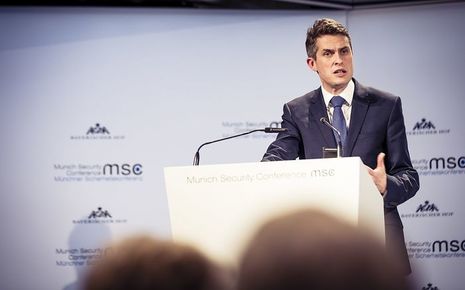
August saw the unfolding of the government's plans for A-level examinations during the pandemic; as no exams were sat this year, the government devised a new grading system which took teachers’ predicted grades and moderated them according to a “standardisation model”. This algorithm was extremely controversial and was found to most severely disadvantage state school students. Over 18,000 students and alumni signed multiple open letters calling on the University and colleges to relax their admissions policies and show greater leniency regarding the admission of state-educated and disadvantaged offer-holders.
The government eventually U-turned on this method of grading and students were instead given their centre assessed grades. Consequently, the University accepted all offer-holders who met the conditions of their offer based on their centre assessed grades. However, “given the unprecedented situation” those who still did not meet the conditions of their offer were “regrettably” not given a place, causing Cambridge SU to accuse the University of an “unwillingness...to proactively redress the inequalities that plague the UK education system.” Despite the A-level results “fiasco”, Cambridge welcomed a record number of state school students, expecting that 70% of this year’s incoming cohort hailed from state schools. The University also welcomed its largest ever cohort, a partial consequence of requiring no students to defer their place.
September - Redundancies
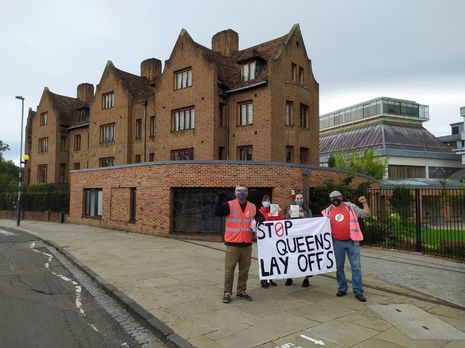
September was a month of pandemic-related redundancies in Cambridge. Queens’, Cambridge's fourteenth richest college, was the first college to take to the stage, as leaked documents revealed the college’s intention to lay off 32 workers from non-academic positions, with 93 jobs identified as being at risk. This prompted the formation of a Queens’ Solidarity Campaign alongside trade union UNITE. Queens’ eventually pledged to not make any compulsory redundancies at the beginning of October.
Later in September came the news that Downing had sacked 27 non-academic staff – 15% of their non-academic workforce at the time – with a further 56 non-academic staff either reducing their hours, taking a career break, or sourcing alternative employment in the College. Just a day later, Varsity reported that Oxbridge’s wealthiest college (as of 2018), Trinity, proposed to make 45 housekeeping staff redundant. UNITE commented at the time: “Once again, a wealthy Cambridge college has shown no mercy in their brutal treatment of the hard working and faithful staff that are the backbone of the institution.”
Elsewhere the University prepared for the return of students in Michaelmas Term, announcing that all students living in college accommodation would be offered weekly Covid-19 tests, regardless of whether they were symptomatic or asymptomatic. This came after the University had previously offered tests to those displaying “flu-like” symptoms since the end of June.
October - University commits to divestment
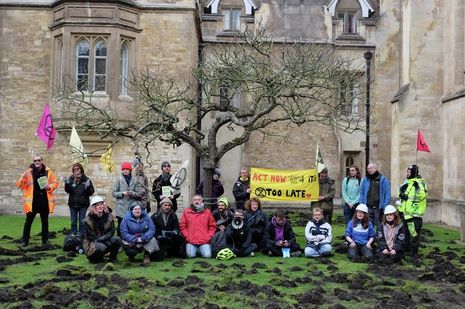
October saw the culmination of the long-running divestment campaign as the University finally announced that they would be divesting from fossil fuels. The announcement, made on October 1st, confirmed that the £3.5 billion Cambridge University Endowment Fund would be refocused towards renewable energy. The University stated their aim of divesting “from all meaningful exposure in fossil fuels by 2030.” The announcement came 16 months after the University first explored how it could divest from fossil fuels and at the end of a five-year campaign from student and staff groups. Zero Carbon described it as “a historic victory for the divestment movement.” However, the decision only binds the central University. Only two colleges, Clare Hall and Christ’s, have made commitments to entirely divest from fossil fuels while a further twelve have committed to partial divestment.
This month also saw the beginning of the University’s screening programme for coronavirus, with 11 positive Covid-19 cases recorded in its first week. A week later it would be announced that 223 students in Homerton West House accommodation would need to isolate after 18 students from across 11 households tested positive.
November - Rent Strikes announced
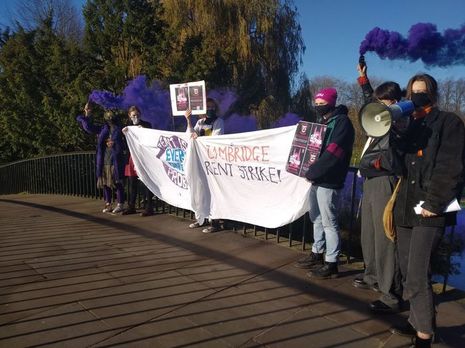
Students launched a Rent Strike in November protesting against the University’s handling of the pandemic. Amongst the strikers’ demands were that the University give all students permission to carry on term remotely and that the University commit to a 30% rent reduction for the 2020/21 academic year. There had been simmering discontent amongst the student body weeks before the rent strike was announced. Over 600 international students had signed an open letter criticising the University’s Covid-19 policies.
The University’s coronavirus screening programme meanwhile recorded its highest number of Covid-19 cases in its sixth week of operation, detecting 80 cases via the asymptomatic screening programme and a further 154 positive cases via symptomatic testing. This came after the government announced that the majority of students would need to return home in a travel window from 3rd-9th December, with Higher Education (HE) Providers moving all learning and teaching online after the window expired.
November also saw an open letter amassing over 1,400 signatures (as of 07/01/21) issued against Jesus College’s leadership after it refused to guarantee that students reporting abuse or harassment would not themselves be investigated for breaching Covid-19 regulations if it took place at a “non-Covid-19-regulation-compliant event”.
December - University votes to amend Statement on Freedom of Speech
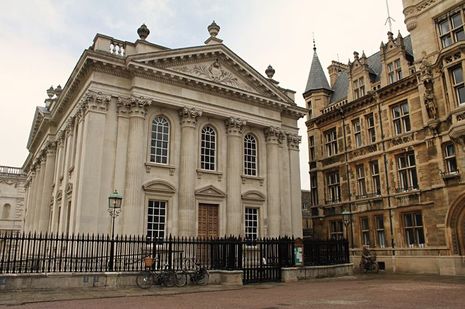
With a 32.1% turnout, a majority of over 75% of Regent House members passed a Grace which saw three principal amendments implemented to the University’s Statement on Freedom of Speech. The first replaced the demand for “respect” for others’ opinions with “tolerance”, the second clarified that the University will only be able to stop a speaker from attending an event if the content of their speech is likely to be lawful and refusal is the last resort, and the third instructs that the University can only restrict an event if it violates the law, “falsely defames”, constitutes a “threat or harassment”, or is “otherwise directly incompatible with the functioning of the University.”
The new amendments, which were hailed by some such as Vice-Chancellor Stephen Toope as “a robust defence of [freedom of speech]”, and critics such as Dr Priyamvada Gopal as “giving eugenicists, racists, and transphobes a prestigious platform,” replaced the revised Statement on Freedom of Speech from March 2020.
In the last week of its operation for Michaelmas Term, Cambridge recorded no new asymptomatic cases through its screening programme, with 9 further positive Covid-19 cases through symptomatic testing. However, while it was announced that Cambridge would initially remain under Tier 2 after London and many areas in the south-east were ramped up to Tier 4 restrictions amidst soaring Covid-19 cases and deaths in the UK, the city eventually entered Tier 4 on Boxing Day.
 Features / Are you more yourself at Cambridge or away from it? 27 January 2026
Features / Are you more yourself at Cambridge or away from it? 27 January 2026 News / Vigil held for tenth anniversary of PhD student’s death28 January 2026
News / Vigil held for tenth anniversary of PhD student’s death28 January 2026 Interviews / Lord Leggatt on becoming a Supreme Court Justice21 January 2026
Interviews / Lord Leggatt on becoming a Supreme Court Justice21 January 2026 News / Reform candidate retracts claim of being Cambridge alum 26 January 2026
News / Reform candidate retracts claim of being Cambridge alum 26 January 2026 Comment / How Cambridge Made Me Lose My Faith26 January 2026
Comment / How Cambridge Made Me Lose My Faith26 January 2026










